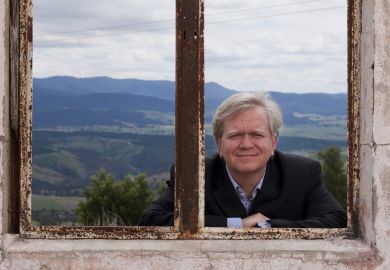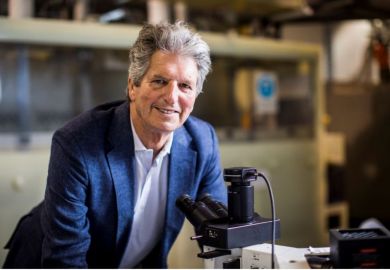Several dozen of the world’s top universities have teamed up to press for action on climate change, saying the coronavirus pandemic should not erase attention on the dangers of a warming world.
The International Universities Climate Alliance (IUCA), unveiled on 2 April, showcases climate change research from 40 universities in 18 countries across six continents.
The group includes institutions with global strengths in key disciplines for both analysing and resolving climate change, such as engineering, economics, law, social science and planning as well as climate science.
UNSW Sydney, which spearheaded the initiative and will coordinate it for the first year or two, is also lead institution for solar photovoltaic technology. While Australia’s catastrophic summer bushfires focused the world’s attention on the consequences of climate change, the initiative has been in the planning for the past two years.
“This new platform is needed now more than ever as the world grapples with providing a coordinated approach to tackling climate change,” said UNSW vice-chancellor Ian Jacobs.
Matthew England, an oceanography and climate dynamics specialist with UNSW’s Climate Change Research Centre, said the group had taken the “tricky” decision to launch the alliance amid the Covid-19 “information saturation”.
While climate action is “on hold while we address this pandemic”, Professor England said there were many parallels with the coronavirus. “One is that acting early makes the process easier, right through to the economy,” he said.
“Another is that this is a problem we can solve by coming together globally and within communities, sharing scientific knowledge but also understanding what we’re all going through across nations. We will solve Covid, and we can also solve climate change with enough of a coordinated effort.”
Member universities include the California Institute of Technology, Cornell University, McGill University, the University of Edinburgh, King’s College London, the Sorbonne University, ETH Zurich, the University of Hong Kong, the National University of Singapore, the University of Melbourne, Monash University, the University of São Paulo, the University of Ghana, the University of Nairobi, TERI School of Advanced Studies in New Delhi, the China University of Geosciences and the Fiji-based University of the South Pacific.
Professor England said he expected another 10 or so institutions to join the group. He said that as an international problem, climate change warranted a “truly international” alliance with global traction.
The aim was to create a “new voice” capable of engaging not just in national-level policy but also international negotiations, such as the treaties formulated under the United Nations Framework Convention on Climate Change.
Professor England said that as mounting scientific and government reports demonstrated the effects of climate change, people were understandably frustrated about political inaction on the issue. “This new alliance is united in helping to break through this barrier so decision-makers can have better access to research-based facts on climate change impacts, adaptation and – most importantly – mitigation,” he added.
The alliance had deliberately embraced institutions in emerging nations with surging populations and energy needs, which were teetering between “going for low-carbon sources of energy or making the mistakes we’ve made in Australia and the US”, Professor England said.
Register to continue
Why register?
- Registration is free and only takes a moment
- Once registered, you can read 3 articles a month
- Sign up for our newsletter
Subscribe
Or subscribe for unlimited access to:
- Unlimited access to news, views, insights & reviews
- Digital editions
- Digital access to THE’s university and college rankings analysis
Already registered or a current subscriber?










